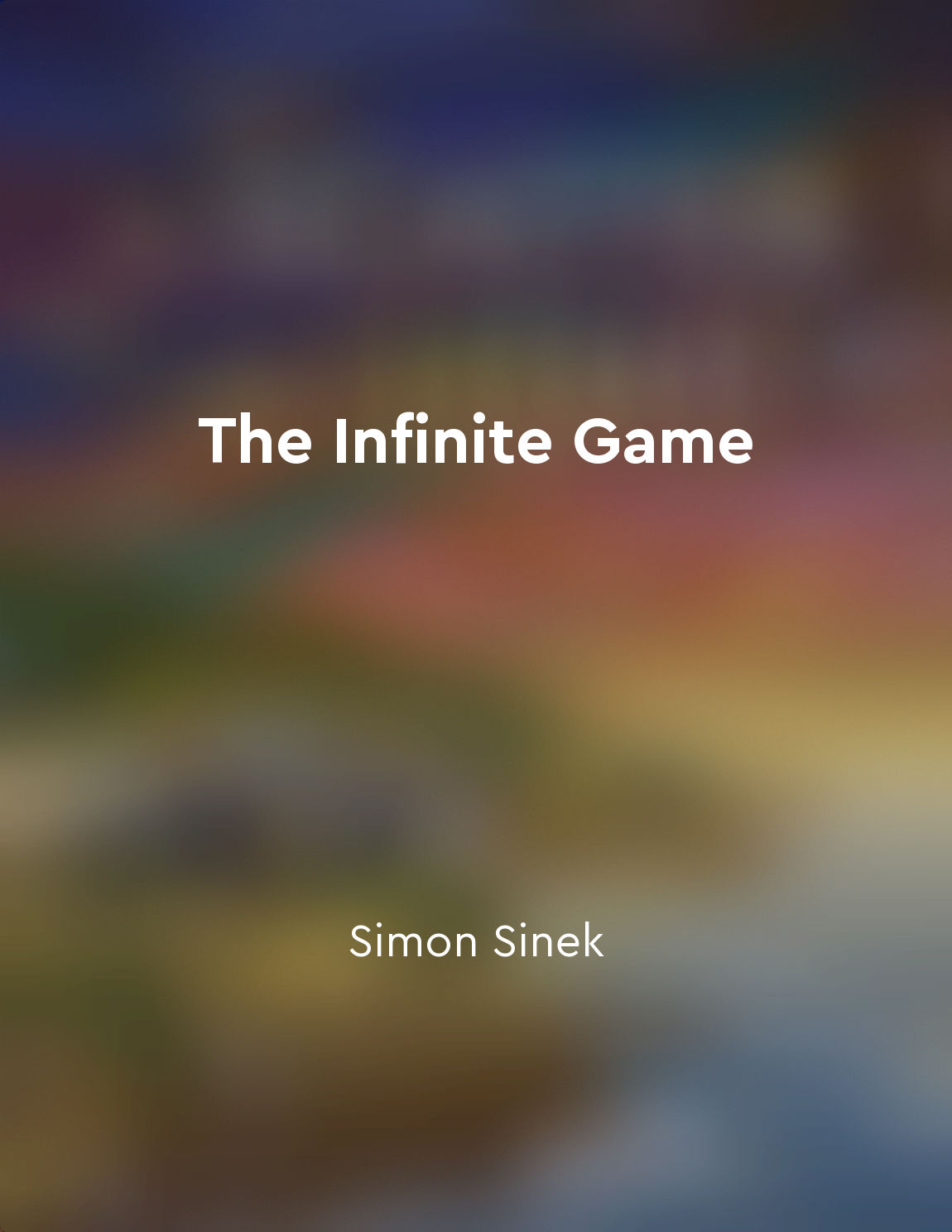Finite games have known players and fixed rules from "summary" of The Infinite Game by Simon Sinek
Finite games are familiar to most of us. They have clearly defined rules and boundaries, with known players who agree to play by those rules. These games have a clear beginning and end, a set of objectives, and a winner or loser. It could be a game of chess, a football match, or even a business deal. In finite games, the players are fixed - you know who you are competing against - and the rules are known, providing a sense of structure and predictability. In contrast, infinite games have unknown players and variable rules. There is no predetermined endpoint or winner in an infinite game. The goal is to keep the game going, to perpetuate the play. This could be seen in the game of life, where the players come and go, and the rules evolve over time. An infinite game is not about winning or losing; it is about staying in the game for as long as possible. Finite games are easier to understand and navigate because of their fixed nature. The rules are clear, the objectives are defined, and the players are known. This ...Similar Posts
Use feedback to improve decisionmaking
Feedback is crucial for improving decision-making. When we receive feedback, we are able to assess the outcomes of our decision...

Redefining productivity
The traditional understanding of productivity is about doing more in less time. It's about efficiency, output per unit input. B...

Encourage a culture of learning and development
To build a strong and resilient organization that can weather the challenges of the infinite game, leaders must prioritize the ...
